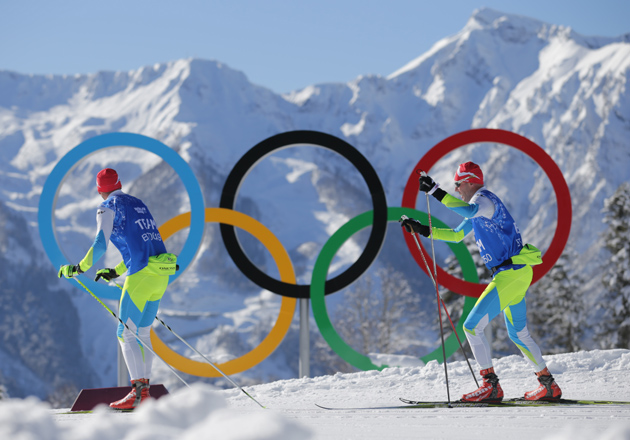 Russian president Vladimir Putin calls Sochi, site of February’s Winter Olympics, “the biggest construction site on the planet,” and for good reason.
Russian president Vladimir Putin calls Sochi, site of February’s Winter Olympics, “the biggest construction site on the planet,” and for good reason.
Since being awarded the games in 2007, the sub-tropical Black Sea city has built 442 miles of fiber-optic cables, 200 miles of roads, 55 bridges, 13 train stations, nine hotels for media outlets, six post offices, five schools, a new airport, a $265 million ski jump, a bobsled track, a ski course, two Olympic villages, an 815-acre floating archipelago, and a partridge in a pear tree.
But one item on local residents’ wish list was met with a pocket veto—a request to build a mosque for Sochi’s 20,000 Muslim residents, many of whom have migrated to the city over the last decade to take jobs building the Olympic facilities.
The mosque issue has long been a sore spot in Sochi, where Muslim leaders have been pushing for a new place to worship since 1996. “I’m so tired of writing letters – whole files – it just drags on and on,” a Muslim organizer told the Norwegian news organization Forum 18 in 2006. One decade after the fall of the Soviet Union, the city’s Muslims were still holding religious ceremonies in cramped basements.
In a 2009 visit to Moscow’s Cathedral Mosque, the nation’s largest, then-president Dmitry Medvedev was asked by the head of the Russian Mufties Council if would support a Sochi mosque project. Medvedev said yes. But in the years since, talks between Muslim leaders and the city government have largely fizzled.
But city leaders, such as deputy mayor Anatoli Rykov, have argued that there’s already a mosque nearby – 50 miles outside the city in the mountain village of Tkhagapsh, population 180. Tkhagapsh is 2 hours and 27 minutes by car from downtown Sochi, and the city’s brand new light rail line, hubbed at the country’s newest, largest train station, doesn’t go there. The mosque is a one-room wood-frame building.
Continue reading →

 Russian president Vladimir Putin calls Sochi, site of February’s Winter Olympics, “the biggest construction site on the planet,” and for good reason.
Russian president Vladimir Putin calls Sochi, site of February’s Winter Olympics, “the biggest construction site on the planet,” and for good reason.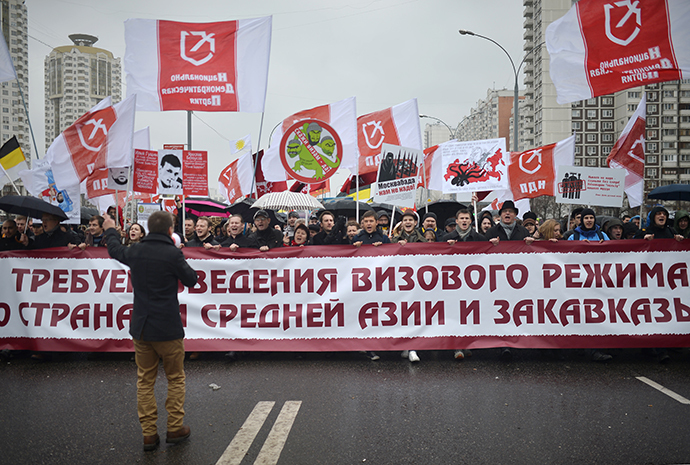
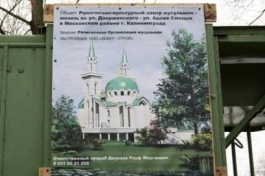 The Central District Court has halted construction of the mosque on two land lots in the Southern Park of Kaliningrad, Rosbalt reports.
The Central District Court has halted construction of the mosque on two land lots in the Southern Park of Kaliningrad, Rosbalt reports.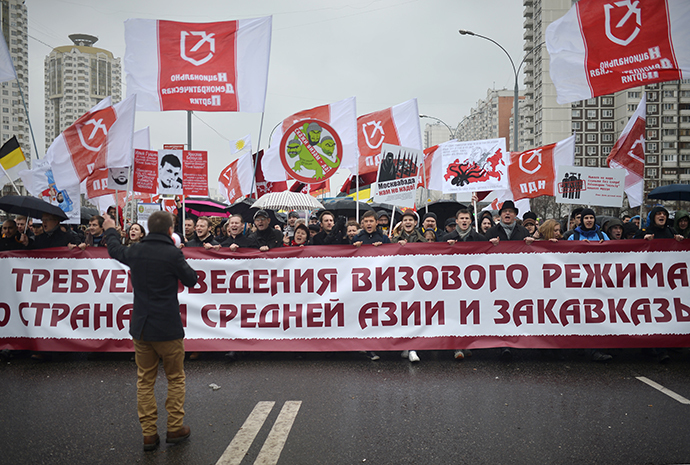
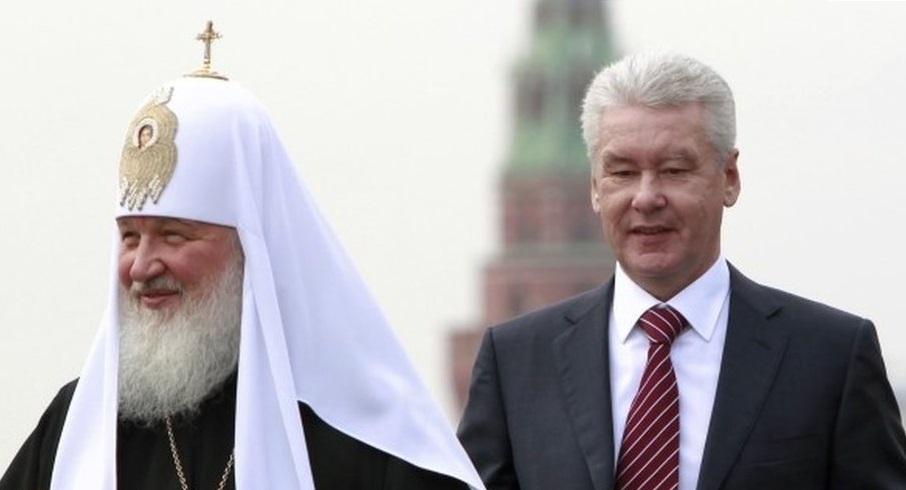 No more mosques will be built in Moscow, despite the huge crowds that swamp the city’s four public mosques on Muslim holidays, because they are mainly used by temporary workers, Moscow Mayor Sergei Sobyanin has decided.
No more mosques will be built in Moscow, despite the huge crowds that swamp the city’s four public mosques on Muslim holidays, because they are mainly used by temporary workers, Moscow Mayor Sergei Sobyanin has decided.